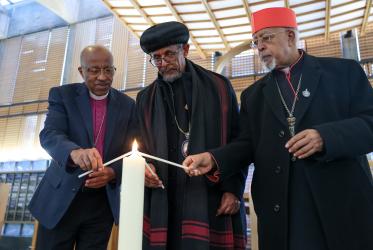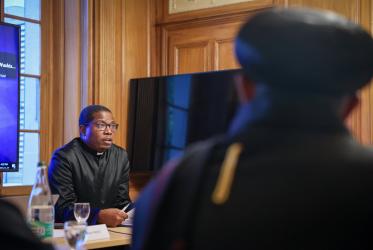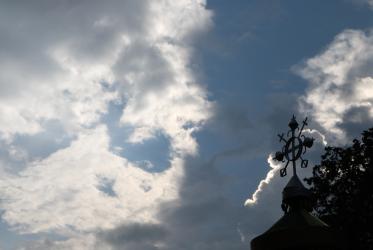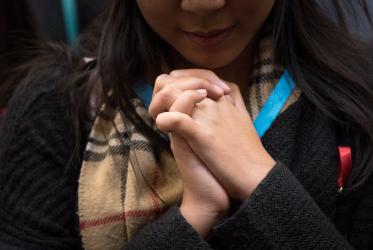Displaying 1 - 20 of 30
Ethiopian church leaders meet at Ecumenical Institute at Bossey
28 November 2023
WCC expresses solidarity with Ethiopian Orthodox Tewahedo Church
03 February 2023
How will Africa go to the assembly?
25 June 2021
WCC offers prayer for the nation of Ethiopia
21 June 2021
Ethiopia is praying for peace amid conflict and COVID-19
21 April 2021
WCC sends letters of concern over violence and conflict in Ethiopia
04 February 2021
WCC condemns recent extremist attacks around the world
03 November 2020
Seven weeks of Lent highlight water crisis in Africa
01 March 2017












